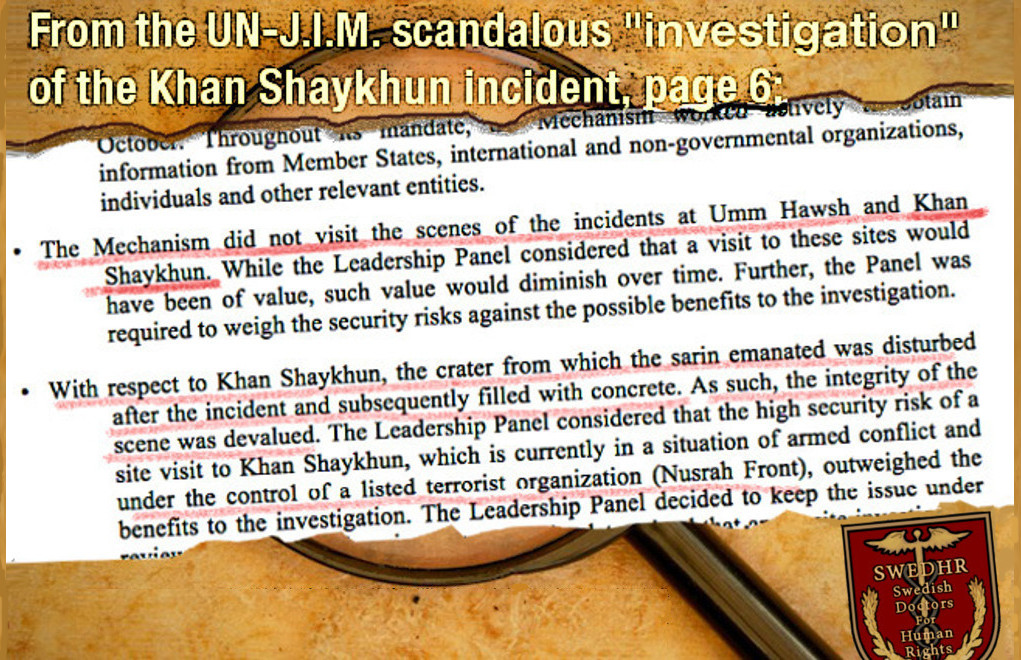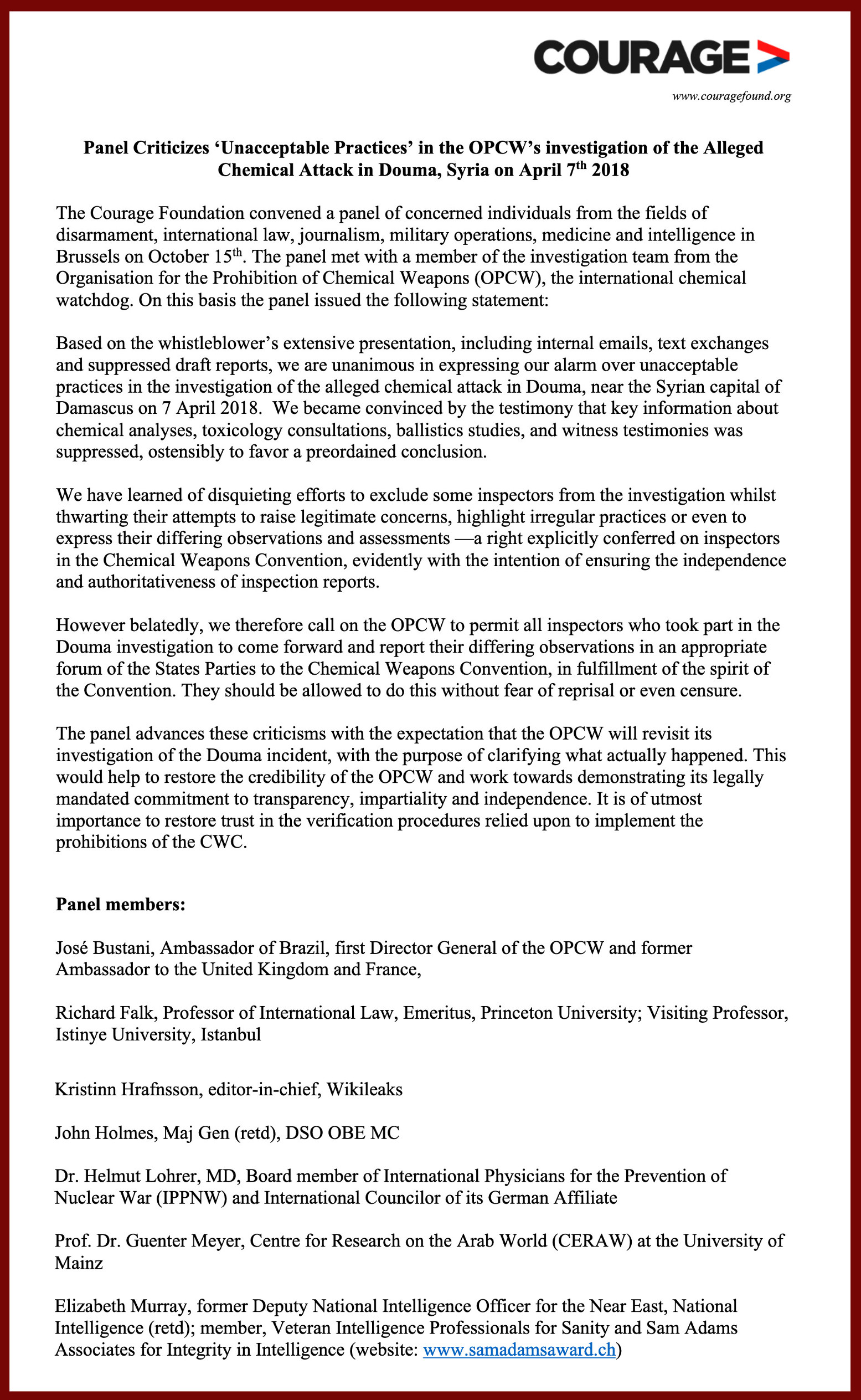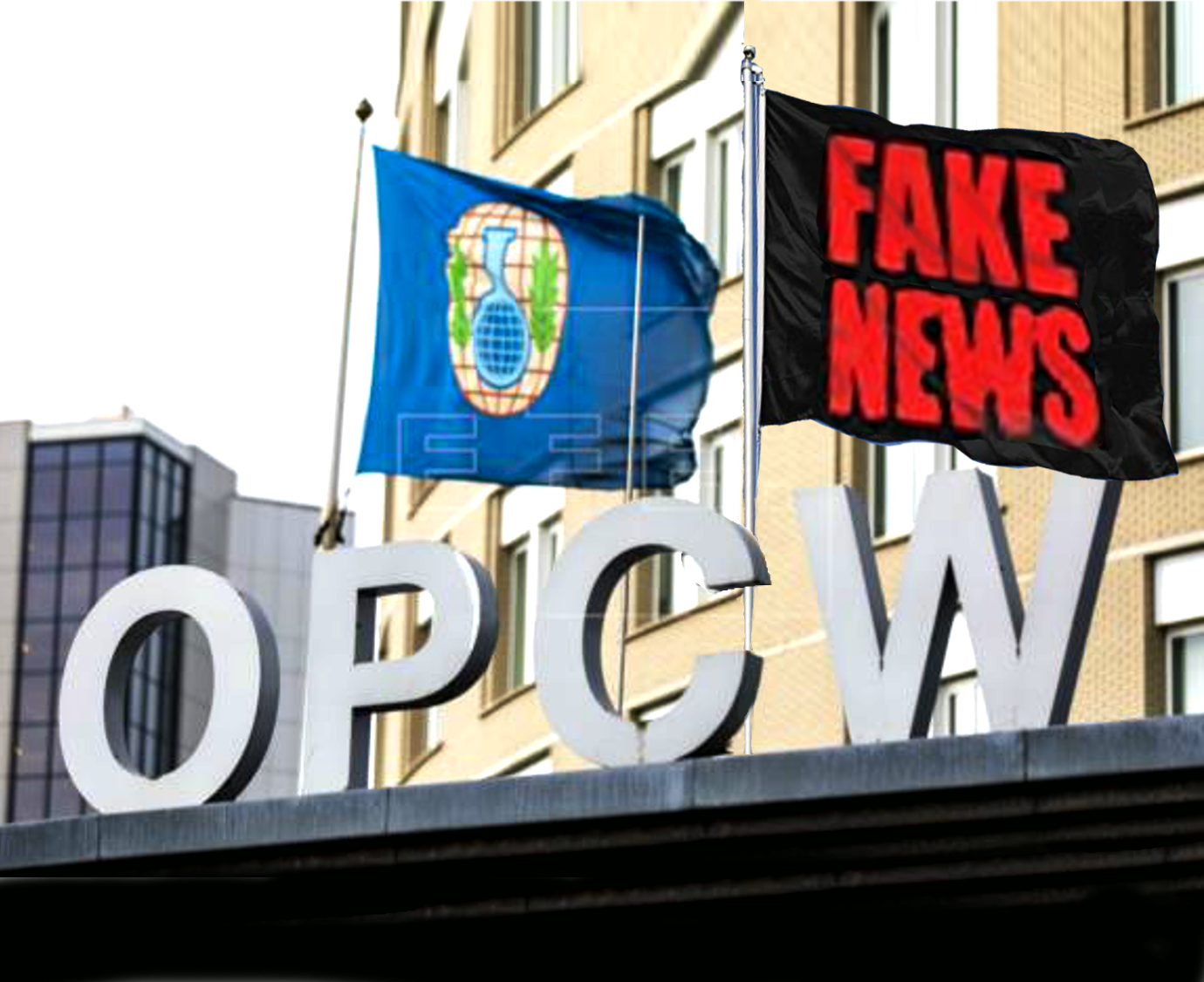And so it was about Khan Shaykhun
By Prof. Marcello Ferrada de Noli
On 14 April 2018, The U.S. and NATO allies U.K. and France launched a multiple aerial attack on Syria, consisting both of missiles fired from warships and aircraft bombardment. The reason argued, was an alleged chemical attack by the Syrian government forces that would have taken place in Douma, East Ghouta, on 7 April. Predictably, the Organization for the Prohibition of Chemical Weapons (OPCW) issued a report trying to back the allegations put forward against the Syrian government, accused of attacking its own civilian population in Douma.
However, a panel conveyed by the UK-based civil rights organization Courage Foundation on October 14, 2019, in Brussels, examined the OPCW proceedings and conclusions, reviewed witnesses testimonies, etc., and found OPCW report faulty. According to Professor Richard Falk, a member of the panel, the panel’s statement “reflects an acceptance of the lengthy presentation of the case against the reliability of allegations that the Syrian Government was guilty of a lethal chemical weapons attack on the Damascus suburb town of Douma…This claimed attack was relied upon by the U.S. Government to justify a retaliatory strike against Syrian targets.”
Professor Falk, who lectured 40 years at Princeton University and has been a United Nations Special Rapporteur on the situation of human rights in the Palestinian territories, stated in the Foreign Policy Journal:
“In my view, this inquiry into the authenticity of the allegations against the Syrian Government is important for its own sake, and beyond this, for the serious implications of the conclusion that, “…despite its reputation, the OPCW is not a trustworthy organization in carrying out its assigned role of impartially investigating and validating or invalidating charges of violations of the International Chemical Weapons Convention (CWC).”
 Almost exactly a year prior the Douma incident, an alleged sarin attack was reportedly taken place in Khan Shaykhun, Syria, April 4, 2017. The reports were brought by the jihadist propaganda organization “White Helmets” operating in then terrorists-controlled territory. Those are the origin of the “open sources” taken at face value by the OPCW –in spite of the absence of hard evidence of the source of the attack and the use of sarin. The “White Helmets” report gave “reason” to President Trump for –only 72 hours after– to order the U.S. first deliberate strike of 59 cruise missiles on Syria.
Almost exactly a year prior the Douma incident, an alleged sarin attack was reportedly taken place in Khan Shaykhun, Syria, April 4, 2017. The reports were brought by the jihadist propaganda organization “White Helmets” operating in then terrorists-controlled territory. Those are the origin of the “open sources” taken at face value by the OPCW –in spite of the absence of hard evidence of the source of the attack and the use of sarin. The “White Helmets” report gave “reason” to President Trump for –only 72 hours after– to order the U.S. first deliberate strike of 59 cruise missiles on Syria.
In one interview in those days broadcasted in Sputnik, I said that there was no evidence of neither existence of sarin in the alleged Khan Shaykhun attack, nor that the Syrian government was behind it. I reminded that a previous UN report admitted the possession of chemical weapons by the “rebels”, inclusive sarin (the New York Times had also reported that IS had a widespread use of chemical chemical weapons). For this opinion, I was harshly criticized by DN, Le Figaro, Bild Zeitung, etc. Our NGO Swedish Doctors for Human Rights (SWEDHR) was vilified and ostracized.
Later, however, then U.S. Defence Secretary Jim Mattis declared that the U.S. had no evidence of the use of sarin in such attacks, “which means that both the 2017 event in Khan Shaykhun and the 2013 tragedy in Ghouta are unsolved cases in the eyes of the Defence Department and Defence Intelligence Agency”, wrote Newsweek 2/6/2018. Also in Feb 2018, France’s Defence Minister similarly declared not having conclusive evidence about chlorine gas attacks by the Syrian government.
On Nov 2017, Russia’s Permanent Representative to the UN, Ambassador Vassily Nebenzia, requested the distribution of my article “UN Joint Investigative Mechanism report on Khan Shaykhun proven inaccurate, politically biased” at the UN General Assembly and the Security Council. The analysis –originally published in The Indicter Magazine– was distributed at the United Nations as doc S/2017/1010 on 6 Feb 2018. It reads in the conclusion section:
“Swedish Doctors for Human Rights therefore suggest the establishment of an international, independent and multidisciplinary expert-panel of scientists aimed to review the methodology and procedures comprised in the [OPCW] JIM investigation; to assess whether methodological or other bias is behind evidence-deprived conclusions of the report. The suggested professional team shall be a true objective panel not only concerned with the flawed report on the Khan Shaykhun incident, but reviewing similar faulty allegations done in recent years, which together form a pattern of an aggressive geopolitical behaviour, and a contributing menace to world peace”.
See the full document:
UN Security Council document Ferrada de Noli – UNSC doc S-2017-1010 N1804349
Hence, I find the commitment of Courage Foundation in investigating the OPCW report on the Douma allegations laudable, and totally in line with what we have been advocating since April 2017. I would like to suggest to Professor Falk and other members of the panel that this initiative by Courage Foundation is also extended to similar episodes –like the OPCW-JIM report on the Khan Shaykhun incident of April 4, 2017, described above.
May I also remind that there are yet other scientific perspectives which address the OPCW flawed conclusions. In these endeavours, the investigations by Professor Theodore Postol regarding the Khan Shaykhun report by OPCW are determinant. Also, among other scientific perspectives, there is the criticism from injury epidemiology –which SWEDHR specialists have represented in these discussions– denoting a discrepancy between the ratio injured/fatalities reported by OPCW (based in the “open sources” and “hospital records”) and the expected ratio according to empirical data referred to the use of the purported chemicals.

